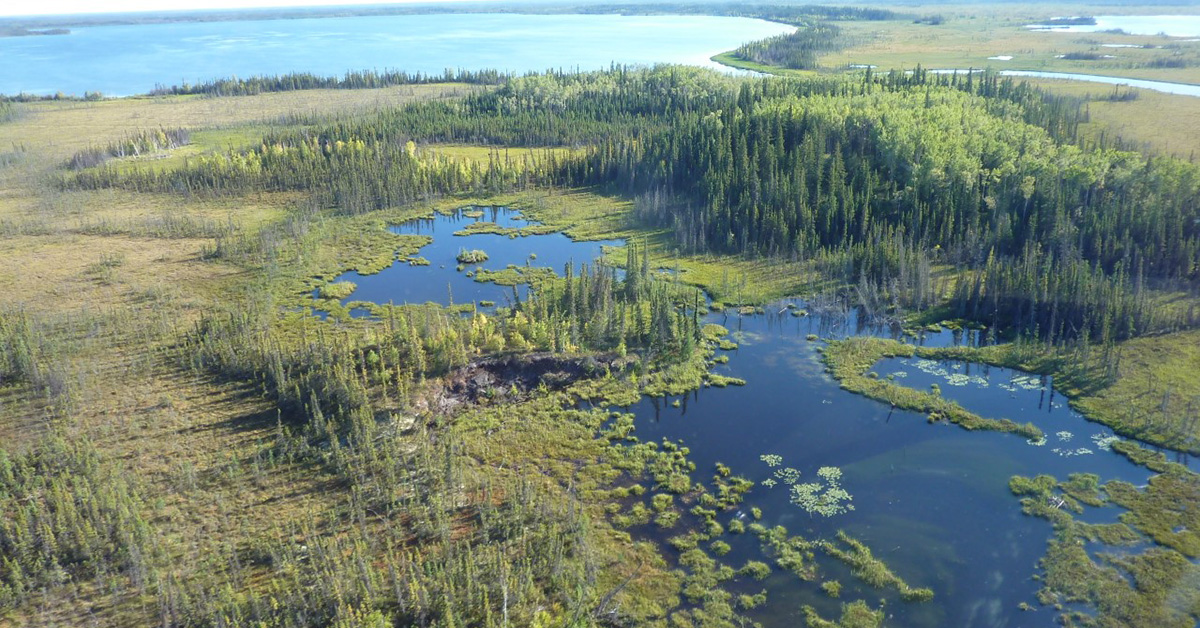Canadian media turned its spotlight on the country’s arctic as Environment and Climate Change Canada (ECCC) released Canada’s Changing Climate Report (CCCR) indicating that we are experience warming at twice the global average, with Northern Canada in particular heating up at almost three times the rate of the rest of the world.
With a growing and pressing need to address climate change in the North, colleges and institutes in Canada’s three territories have risen to the challenge, using their unique expertise to undertake research projects that improve the well-being of their communities.
The many research specializations of Aurora College, Nunavut Arctic College, and Yukon College include climate change mitigation and natural resources management; alternative energy; food security; and also socio-demographic challenges, such as mental health, suicide prevention, and substance abuse; and preserving Indigenous knowledge, culture, and histories. For example:
- The Aurora Research Institute division of Aurora College is currently undertaking a project to provide solutions to food security issues in the North incorporating Indigenous traditional knowledge to meet dietary guidelines set out by the Canada Food Guide;
- The Arts, Craft and Technology Micro-Manufacturing Centre (ACTMC) at Aurora College helps artists and entrepreneurs merge traditional arts and crafts with new technologies, such as 3D printing, laser cutting and computer-aided design; and,
- At the college’s Yellowknife North Slave Research Centre, researchers are collaborating on the Welcoming the ‘Sacred Spirit’ project connecting Indigenous and western ways of knowing to optimize maternal health delivery. Other areas of focus include femicide, domestic abuse, and women’s health in rural and remote communities.
- Nunavut Arctic College is home to a grid-connected photovoltaic array, fully operational since 1995, investigating the potential for solar alternatives to diesel fuel in power generation for northern communities that experience long periods of limited sunlight; and,
- The college also houses Nunavut’s only water quality laboratory, conducting applied research with government and post-secondary partners in wastewater treatment and decontamination prior to discharge into marine environments.
- At the Yukon Research Centre, part of Yukon College, researchers participating in the Hazards Mapping Project have published an online atlas highlighting the vulnerability of areas of land to climate change. The maps can be used as a tool by engineers and infrastructure planners, contributing to future transportation security.
- The college is also partnering with Ryerson University to study how social work is practiced in the small and remote communities of Canada’s North. The pilot study is a first for research into northern social work led by social workers who actually work in the North.
- Additionally, the college’s Cold Climate Innovation (CCI) Centre specializes in the development, commercialization, and export of sustainable cold-climate technologies and related solutions for subarctic regions around the world. CCI project areas include alternative energy, building construction, climate-related research, environmental remediation, food security and mechanical innovation.
Budget 2019 reinforced the importance of the Arctic region in Canada, stating that we have “an opportunity – and a responsibility – to be world leaders in sustainably developing the north.”
Given their innovation capacity and research expertise, Northern colleges and institutes have, and will continue to have, a vital role to play in sustainable economic and community development in the North, contributing to the mitigation of the effects of climate change, and working towards Reconciliation for northern Indigenous communities. Budget 2019’s investments in climate resiliency of northern communities, post-secondary education in the North, and universal high-speed internet for rural, remote, and northern communities are important steps to ensuring that these institutions are given the resources they need to grow their leadership role not just in Canada, but globally.

